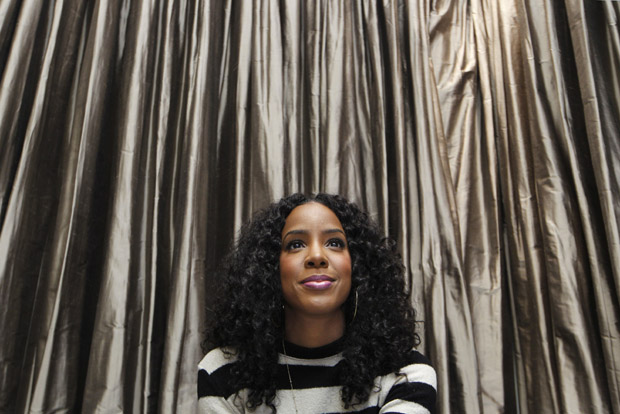Why Kelly Rowland’s ‘Dirty Laundry’ is one of the most important songs of 2013
By Britt Julious

Why Kelly Rowland’s ‘Dirty Laundry’ is one of the most important songs of 2013
By Britt Julious
I am thinking about my friends and acquaintances in high school, how they arrived to class with bruises on their arms.
“What happened?” we used to ask.
And then they whispered something about their boyfriends, a volatile argument, and how it was their “fault.” They would brush questions aside, blaming themselves for the violence in their relationship. My friends were across the racial and ethnic spectrum, but their situations were eerily similar.
On Wednesday, former Destiny’s Child member and solo artist Kelly Rowland released “Dirty Laundry,” a highly emotional, personal, and startlingly blunt song about her career and personal life. Production-wise, “Dirty Laundry” is as clear and straightforward as the lyrics. Structured with steady, yet ominous piano chords and a static drumbeat, “Dirty Laundry” plays like some of the best confessional r&b songs. Rowland sings:
Started to call them people on him/I was battered/He hit the window like it was me/Until it shattered/He pulled me out and said ‘Don’t nobody love you but me/Not your mama not your daddy and especially not B’
In the song, Rowland talks about her feelings in the industry and a violent relationship with an ex, but her situation is applicable and relevant to the circumstances of her listeners. According to a study from the U.S. Department of Justice in a compilation of statistics from the American Bar Association’s Commission of Domestic Violence, “Black females experienced intimate partner violence at a rate 35% higher than that of white females, and about 22 times the rate of women of other races.” As a singer in the r&b genre with audiences largely both black and female, Rowland’s release can act as a call for action and a means of shedding light on an issue that still receives little attention.
The statistics for domestic violence are sobering. We assume that because we are not actively talking about it all the time that it is not there. We assume that if it is not in front of us everyday that it can’t possibly exist. And yet, the numbers do not lie. The number one killer of African-American women ages 15 to 34 is homicide at the hands of a current or former partner, says the ABA. As well, only 17% of African-American sexual assault survivors report their assault to the police. The importance of this song and Rowland’s experiences can’t be reiterated enough. Later in the song (and years after her relationship ended), she sings:
I got my shit down pat/Think I had it good/And they don’t know how bad/Fooled everybody/Except myself/Soaking in this hurt/Bathing in the dirt
Like many of her listeners, Rowland kept her experiences a secret. Outside she exuded strength and charisma, but inside she kept a secret. She was shamed herself, never being able to reveal her experiences to the public.
The question of how much a public figure owes the public is debatable. I do not believe it was Rowland’s responsibility to reveal this part of her life. And as the lyrics of the song indicate (Phone call from my sister; ‘What’s the matter?’/She said, ‘Oh no, baby, you gotta leave’) family and friends like Beyonce knew. But Rowland’s experience began nearly a decade ago. The courage to speak out can be difficult for many. If only one woman listens to Rowland’s work and sees in it the courage to speak out that is one life potentially saved.
Art can and should mean different things to different people. As a whole however, art in and of itself is something that we consume constantly and voraciously. Music is the most accessible form of art. We seek in it something personal and true. It is no surprise that a variety of different genres exist to speak to both our personal tastes and our desire to clarify and reiterate life’s questions through notes, chords, or lyrics. In “Dirty Laundry,” Rowland reveals her truth. That it is shocking to the public reflects our unwillingness to address an insidious facet of our culture.
Britt Julious blogs about culture in and outside of Chicago. Follow Britt’s essays for WBEZ’s Tumblr or on Twitter @britticisms.
